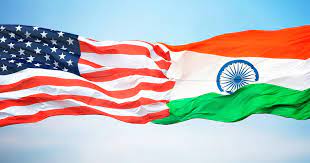NEW DELHI: The US will renew efforts by the West to wean India away from oil and arms dependency on Russia, with a series of meetings scheduled in the coming days.
Notable among them is the interaction between National Security Advisors (NSAs) Ajit Doval and Jake Sullivan this week on cutting-edge technologies, besides a meeting in March between NATO and Ministries of External Affairs and Defence.
Senior US diplomat Victoria Nuland, considered the original architect of the US policy on Ukraine, will also meet senior officials to help “India find alternatives to Russian military equipment”.
In India for foreign office consultations, US Under Secretary of State for Political Affairs Victoria Nuland told the Senate Foreign Relations committee that India had “60 years of entanglement” with Russia which needs to end. She was essentially reiterating the statement she made last May after visiting India.
Her visit follows that of Assistant Secretary of State Donald Lu’s trip earlier this month.
Nearly in parallel, NSA Doval and his US counterpart Sullivan will be in Washington for the first “Initiative on Critical and Emerging Technologies”. The initiative took shape after PM Narendra Modi underlined to US President Joe Biden the need to get the partnership on cutting-edge going when they met in Tokyo last year for the Quad summit.
The meeting on Tuesday would “forge closer linkages between government, academia and industry of the two countries in areas such as AI, quantum computing, 5G/6G, biotech, space and semiconductors,” said an official statement while the White House said it would expand partnership in critical and emerging technologies.
On Wednesday, there will be a dialogue on space issues, which will also be attended by ISRO chief S Somnath.
In March, senior officials from NATO’s policy planning division will hold a dialogue with officials from the Ministries of External Affairs and Defence. The dialogue with NATO has taken place infrequently, but the March meeting is of significance as it will be held after Nuland’s interaction and the hi-tech dialogue.
However, the news about the India-NATO meeting has drawn an adverse reaction from China. “If such cooperation goes further, New Delhi will have to encounter severe backlash from its people and face greater losses of diplomatic and strategic autonomy,” wrote Global Times.
The attempt to bring India close to the Western military bloc received a boost when the chair of the UK’s defence select committee suggested the AUKUS agreement among Australia, the UK, and the US should expand to include India and Japan. AUKUS is aimed at helping Australia acquire nuclear-powered submarines. Japan, Australia and the US are part of the Quad whose fourth pillar is India.


